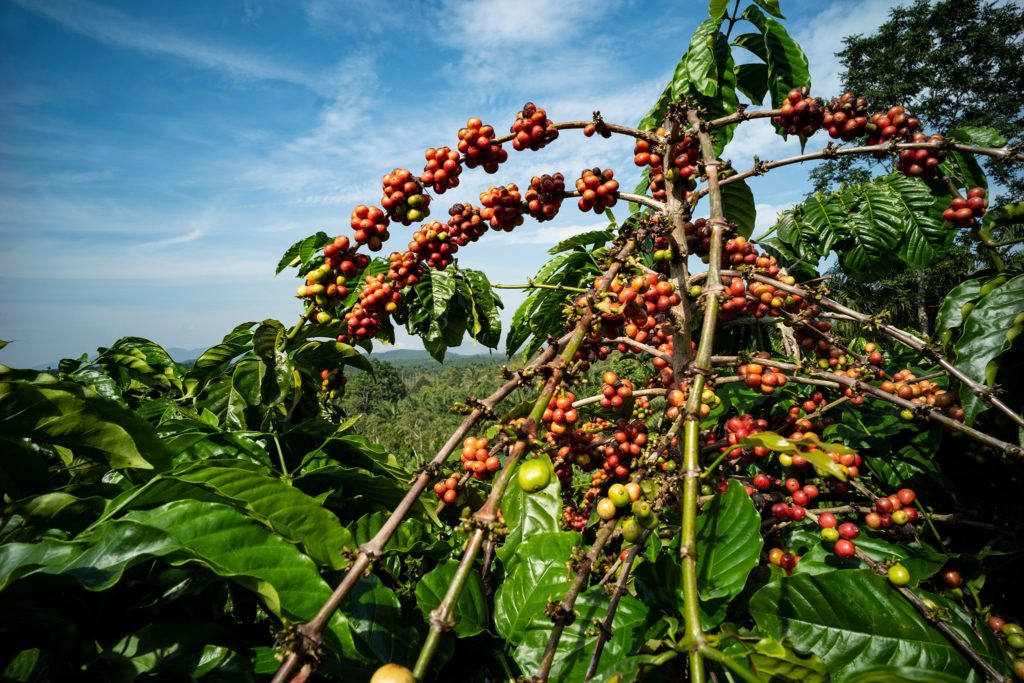

Durrant Pate/ Contributor
Jamaica’s world-famous Blue Mountain Coffee, which has proven to be susceptible to all kinds of plant and crop diseases over the years, particularly the coffee leaf rust, is getting much-needed help in protecting coffee berries.
Help has come from the International Centre for Environmental and Nuclear Science (ICENS), a research facility of the University of the West Indies (UWI), fighting the coffee leaf rust, which is a fungal disease that has ravaged coffee plants across the Caribbean since an initial outbreak in 2012, hamstringing production since then.
ICENS, which hosts the only research reactor in the Caribbean, has come up with a new technology capable of protecting Blue Mountain coffee, which is an internationally renowned variety of Arabica coffee that is produced in Jamaica.
The technology focuses on Jamaica’s newly established mutation breeding programme, which has been proven to counter the harmful effects of the coffee leaf rust. Since a major outbreak of the disease in 2012, nearly one-third of Jamaica’s Arabica coffee population has been affected, reducing yields and endangering export revenues.
How the technology works

In explaining how the technology works, Executive Director of Jamaica’s Scientific Research Council (SRC), Charah Watson, says, “the goal of our mutation breeding programme is to induce beneficial traits that can help overcome key production constraints. Using gamma irradiation, we aim to generate chromosomal changes that result in random yet useful DNA mutations. The desired traits include resistance to fungi and bacteria, reduced maturation time and improved insect resistance.”
The irradiator, which is a device that exposes materials to radiation for various purposes, including sterilisation, food preservation, and research, has been installed in a purpose-built facility at ICENS. The devices utilise different types of radiation sources, such as gamma rays, X-rays, or electron beams, depending on the application.
The new irradiator was procured by the IAEA through its technical cooperation programme and is now being used to also develop new varieties of ginger, yam and sweet potato—staple crops which not only contribute to food security in Jamaica but are also key national exports as irradiation can control spoilage and food-borne pathogenic mirco-organisms or insect pests without significantly affecting taste or smell.
Pointing to the imperative of this programme, Director General of ICENS, Charles Grant states, “in the short term, this facility will be integral to our efforts in crop improvement and integrated vector management [for insect pests]. In the medium to long term, the multi-purpose irradiator will also be utilised for the shelf-life extension of seasonal crops and, in the health sector, we intend to make arrangements with the University Hospital of the West Indies to start sterilising medical equipment and to assist with research on improving skin graft technologies.”
The International Atomic Energy Agency (IAEA) notes that industrial irradiators can expose any product or piece of equipment to radiation, but this technology has applications across a diverse range of disciplines, industries and research areas, including food preservation, medical device sterilisation, materials modification and cultural heritage.
To help Jamaica leverage this valuable new tool to its fullest, before its installation, the IAEA led a series of national projects to build capacity in plant tissue culturing and screening – methods that would benefit from the irradiator. Alongside training courses and workshops, two research fellowships were created at the Joint FAO/IAEA Centre in Seibersdorf, Austria, which supported the development of new crop varieties using gamma and X-ray irradiation, as well as other advanced molecular techniques.
Nuclear Technology to combat insect-borne threats
The IAEA notes that nuclear technology is also helping Jamaica combat another growing threat to its economy and public health—insects. Jamaican crops are dogged by the West Indian fruit fly, a major pest of soft fruits like mangoes, plums and apples.
Under an ongoing technical cooperation project, Jamaica is strengthening its capacities in mosquito mass-rearing and irradiation procedures to validate the sterile insect technique (SIT) as an efficient means of controlling disease-transmitting mosquitoes. Efforts are also being made to increase the mosquito mass-rearing capacity to allow the implementation of a field pilot trial.
“The use of the sterile insect technique to control Aedes aegypti mosquito populations, as part of an area-wide integrated pest management programme, can significantly reduce the impact of mosquito-borne diseases, thereby improving the quality of the lives of the citizens of Jamaica and the output of the nation,” highlights Sherine Huntley-Jones, National Programme Manager for Vector Control in Jamaica’s Ministry of Health and Wellness.
Going forward, the country is striving to ramp up its engagement with nuclear applications, including the sterile insect technique, mutation plant breeding, and non-destructive testing. The new multi-purpose gamma irradiator will help boost these efforts.







Comments